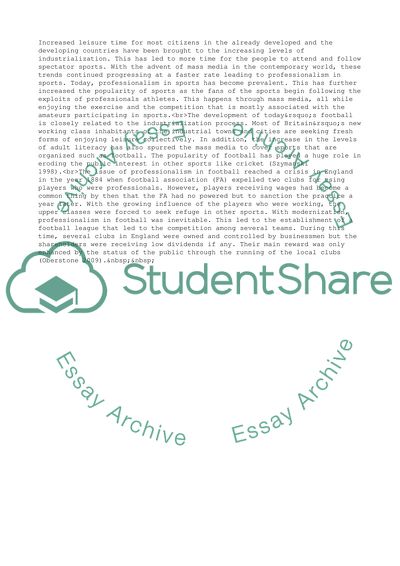Cite this document
(Professionalization of Modern Sport - Manchester United Experience Case Study, n.d.)
Professionalization of Modern Sport - Manchester United Experience Case Study. Retrieved from https://studentshare.org/management/1688232-professionalization-of-modern-sport-for-profit-or-glory
Professionalization of Modern Sport - Manchester United Experience Case Study. Retrieved from https://studentshare.org/management/1688232-professionalization-of-modern-sport-for-profit-or-glory
(Professionalization of Modern Sport - Manchester United Experience Case Study)
Professionalization of Modern Sport - Manchester United Experience Case Study. https://studentshare.org/management/1688232-professionalization-of-modern-sport-for-profit-or-glory.
Professionalization of Modern Sport - Manchester United Experience Case Study. https://studentshare.org/management/1688232-professionalization-of-modern-sport-for-profit-or-glory.
“Professionalization of Modern Sport - Manchester United Experience Case Study”, n.d. https://studentshare.org/management/1688232-professionalization-of-modern-sport-for-profit-or-glory.


